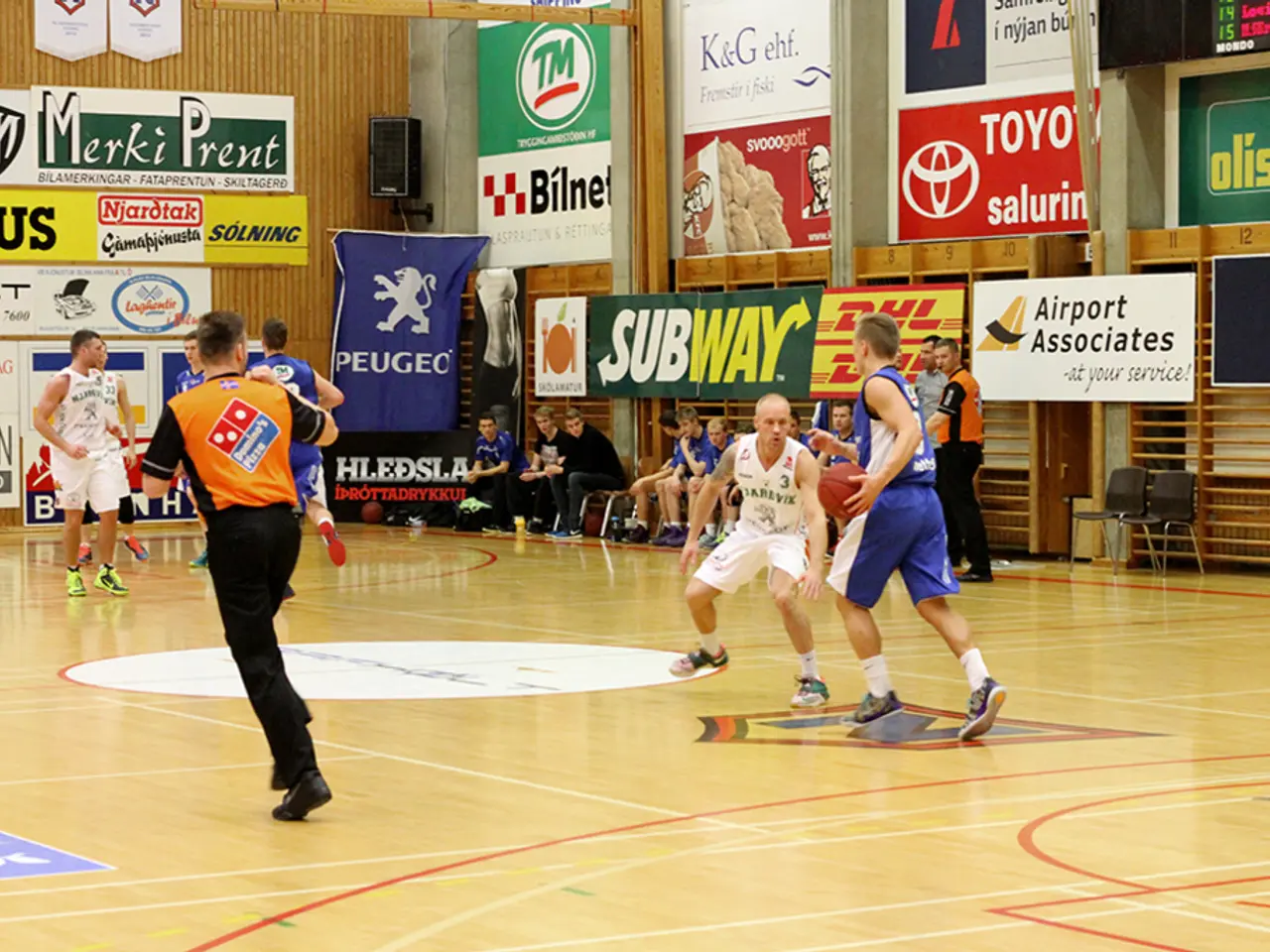WNBA Athletes Leverage Public Influence in Wage Discussion with League Authorities
The ongoing negotiations for the next Collective Bargaining Agreement (CBA) in the Women's National Basketball Association (WNBA) have seen a significant influence from public opinion, shaping the pressure on both the league and players to reach a fair agreement.
The Women's National Basketball Players Association (WNBPA), led by executive director Terri Carmichael Jackson and president Nneka Ogwumike, has actively sought public support in their labor fight. This was evident during the WNBA All-Star Weekend, where players donned "Pay Us What You Owe Us" shirts before the game, a move that attracted attention and put pressure on league officials.
The slogan was one of the top trending searches related to the WNBA last weekend, reflecting the growing awareness and support for player demands. The demands focus on issues such as revenue sharing, salary structure, travel conditions, and benefits.
While owners and league management tend to negotiate more privately, they are aware of public opinion's impact. The league has been cautious about engaging openly, but the players' public campaign has forced a visible spotlight on the financial dynamics of the league and the fairness of revenue distribution formulas.
Rich Paul, CEO of Klutch Sports, believes that while fan pressure can be bold, the key to making real progress in CBA negotiations lies in the right people being in the room and negotiating the best deal.
The public's growing awareness and support for player demands can escalate the urgency to avoid a labor stoppage or lockout, which would disrupt offseason events like free agency and could harm the league's momentum and fan engagement.
In a recent related story, WNBA players have been vocal about saying "Pay Us" as commissioner Cathy Engelbert offers a sunny CBA outlook. However, players like Angel Reese and others are willing to go into a work stoppage to secure an "equitable" accord. Yet, a walkout could backfire on the union at a time when fan interest and investment is at an all-time high.
As the October 31st deadline approaches, commissioner Engelbert has suggested that extensions can be made to continue the negotiations. Napheesa Collier, who was named the MVP of the WNBA All-Star Game, and other players will continue to advocate for fair compensation, hoping to strike a balance between financial realities and the league’s public image.
Fans, too, have shown their support, with thousands chanting "Pay them! Pay them!" during commissioner Engelbert's speech at the All-Star Game. The public's engagement can be seen in the sales of "Pay Us What You Owe Us" shirts from online sports apparel company BreakingT.
In conclusion, public opinion acts as a powerful stakeholder in WNBA CBA negotiations, mobilizing fan and media support to pressure for equitable revenue sharing and better player conditions. This, in turn, shapes negotiation dynamics and potential labor outcomes.
- Amidst the ongoing WNBA CBA negotiations, the public's growing support for fair compensation for players is playing a significant role, influencing the league's stances and affecting the negotiation dynamics.
- The public's engagement in the WNBA's CBA negotiations has been evident through various channels such as online sales of "Pay Us What You Owe Us" shirts, fan chants, and increased media attention, creating pressure on both league officials and players for a fair agreement.
- As the WNBA CBA negotiations progress, sports-betting markets might reflect the public's growing awareness and support for the players' demands, potentially impacting the perceived fairness of revenue distribution formulas and player conditions within the league.




